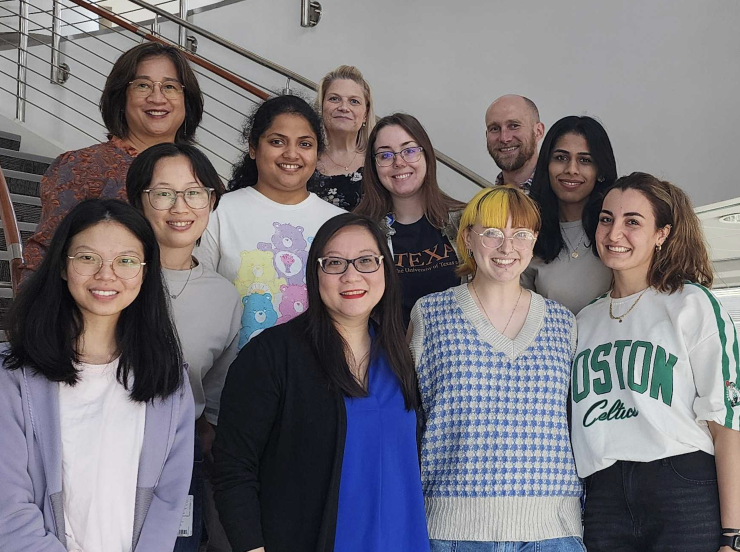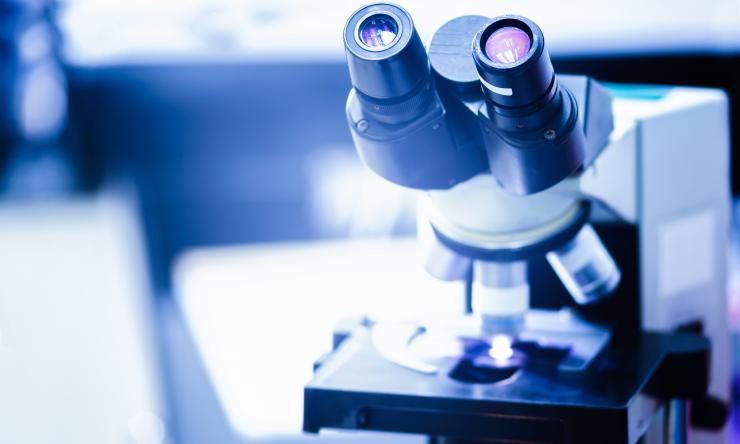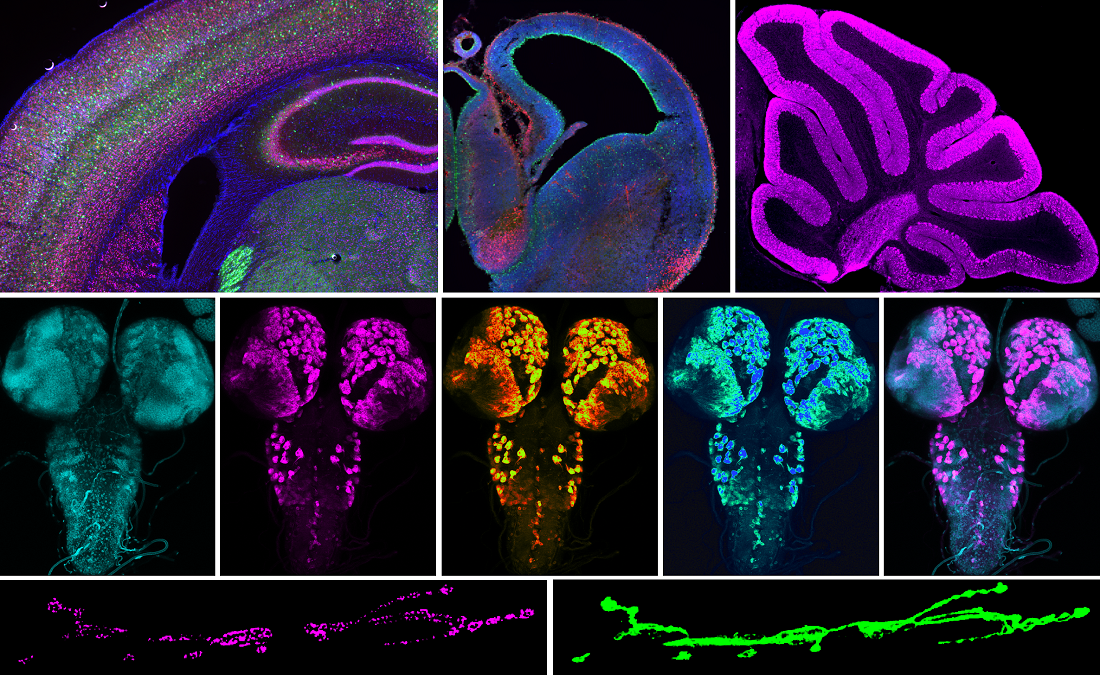
About the Lab
Neurodevelopmental disorders encompass a broad constellation of conditions including intellectual disability, epilepsy, autism, schizophrenia, and other neuropsychiatric conditions. One emerging theme in the field is that disrupted inhibitory neuronal development and function is found in association with many neurologic and psychiatric disorders. This would be consistent with the growing body of knowledge that inhibitory neurons are highly diverse and key for virtually all aspects of neurobiology from neural circuit development to modulating neuronal activity to information processing.
In the Chao Lab, we integrate cross-species approaches in humans to uncover the genetic etiologies of neurodevelopmental disorders, fruit flies to elucidate the molecular pathways, and mice to explore the cascade of events in the mammalian brain. A wide variety of approaches and techniques are employed in our laboratory including genetically engineered mouse and fruit fly models, structural and functional analyses with electrophysiology, confocal and super-resolution imaging, transcriptomics, molecular and cellular assays, and comprehensive behavioral profiling. Neurodevelopmental disorders that we study include genetic syndromes characterized by epilepsy, autism, ataxia, leukodystrophy, and/or neurodegeneration. These syndromes are due to a variety of genetic and molecular alterations including transcription factor dysfunction (EBF3), protein translation dysfunction (EIF2AK1, EIF2AK2, EIF4A2), and synaptic machinery (STXBP1, PPFIA3).
Our goal is to decipher how genetic alterations perturb the balance of excitation and inhibition in the brain, impact cerebro-cerebellar circuits in autism and ataxia, impact neural development across multiple brain structures, and lead to abnormal neurologic output.
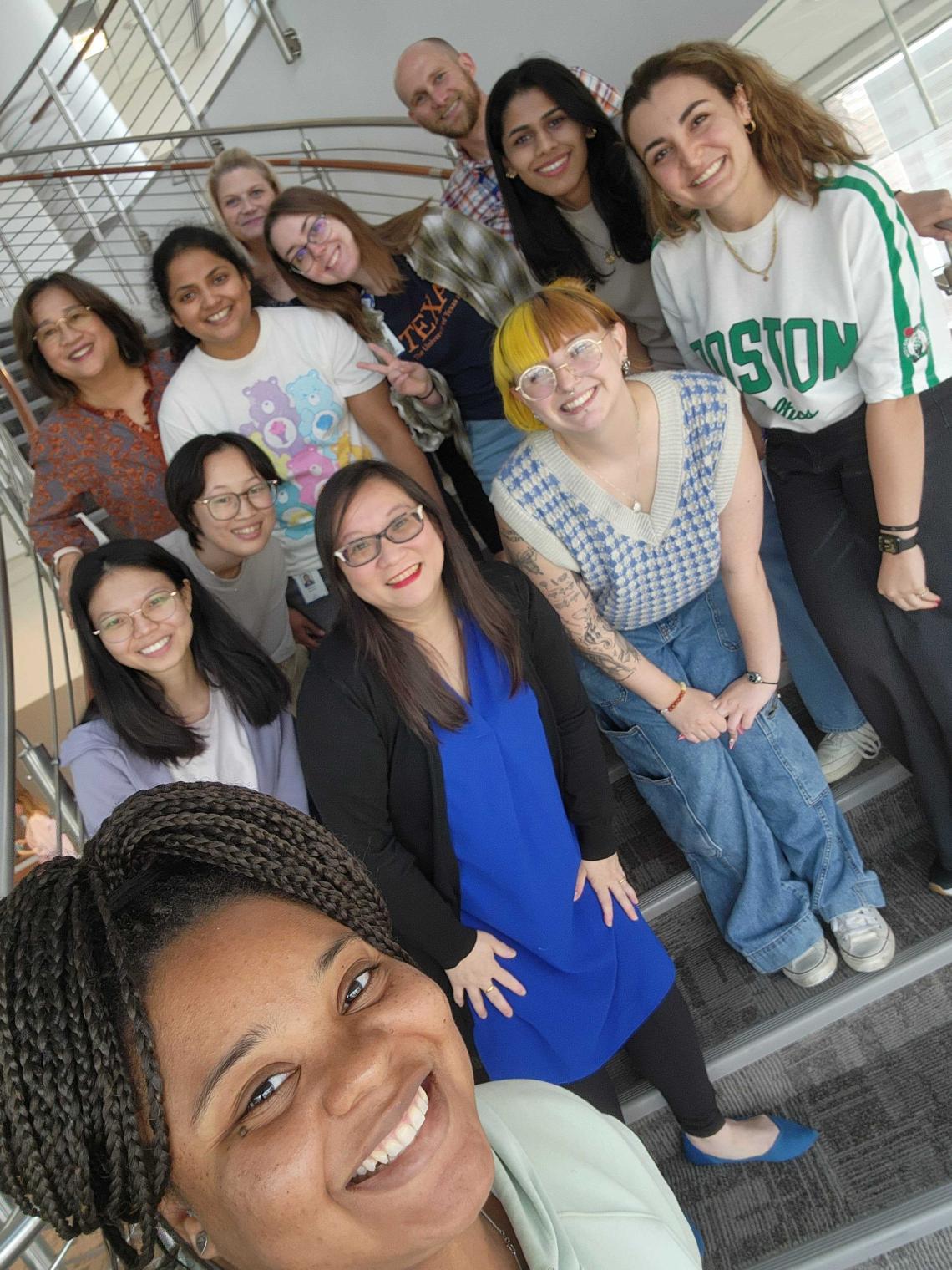
Celebrating lab achievements (August 2024)!
Celebrating the wonderful accomplishments of our team of rising stars. Congratulations to Dr. Maimuna Sali Paul on starting soon her own neurogenetics research laboratory as Assistant Professor at Manipal University and Sydney Michener on launching her next career adventure in healthcare!

Congratulations Jordan Wu!
Congratulations to our stellar lab alumna and future physician Jordan Wu on her White Coat Ceremony at UCLA's David Geffen School of Medicine! Proud of her many accomplishments and excited for her future career in medicine.

2023 Pediatrics Research Symposium
Congratulations to Jordan Wu and postdoc Dr. Kailin Mao on their superb poster presentations at the 2023 Pediatrics Research Symposium for the Department of Pediatrics! Stellar work on developing new mouse models to study genetic causes of autism, ataxia, and leukodystrophies.
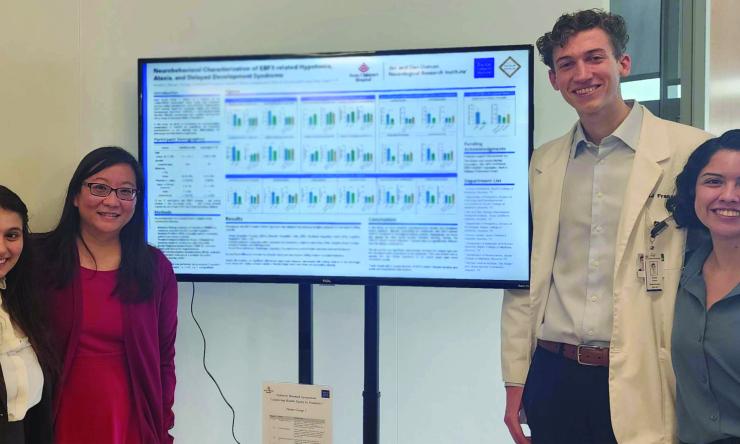
2023 Pediatrics Research Symposium
Congratulations to stellar medical students Melina Corriveau, RJ Franzen, and Sabrina Amaya on their superb poster presentations on PAK1 and EBF3-related neurodevelopmental disorders at the 2023 Pediatrics Research Symposium for the Department of Pediatrics.

Lab celebration October 2023
Celebrating a superstar team! Honored to celebrate Dr. Kailin Mao's accomplishments and our stellar BCM Neuroscience and Genetics and Genomics graduate students. Future leaders in STEM at the Duncan NRI. Kudos to Dr. Maimuna Paul and the many team members unable to attend the dinner!
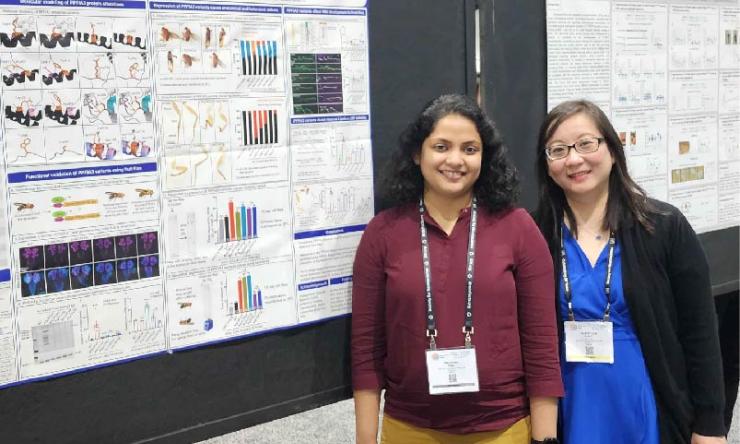
2022 Society for Neuroscience Meeting
Congratulations to Dr. Maimuna Paul for a superb presentation of her exciting new autism-related gene discovery at the 2022 Society for Neuroscience meeting in San Diego, Calif. Her work was profiled at the conference by Spectrum News. Kudos Maimuna!
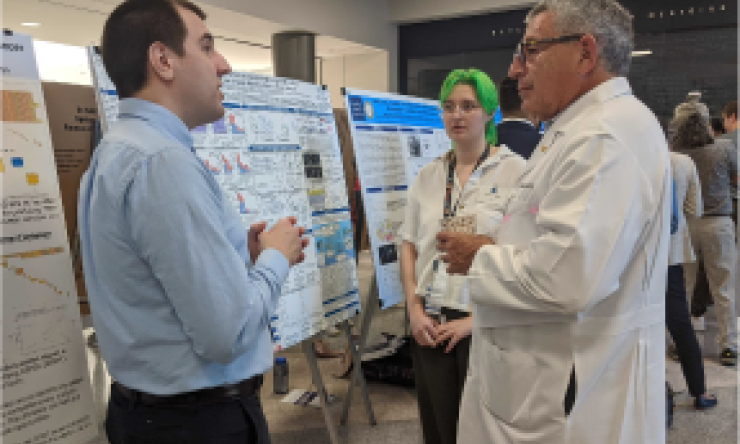
2022 McNair Medical Institute Symposium
Great to be back in person for the 2022 McNair Medical Institute Research Symposium at BCM! Kudos to MSTP/GG student Cole Deisseroth for a stellar presentation of his paper on EBF3-related disorders published in the Annals of Neurology! Grateful to The Robert and Janice McNair Foundation for supporting our research discoveries. From left to right: Cole Deisseroth, Jess Pfliger, Dr. Paul Klotman. Other presenters from the lab at the McNair Symposium include Dr. Maimuna Paul and MSTP/DDMT/GTR-CAQ student Thomas Gebert.
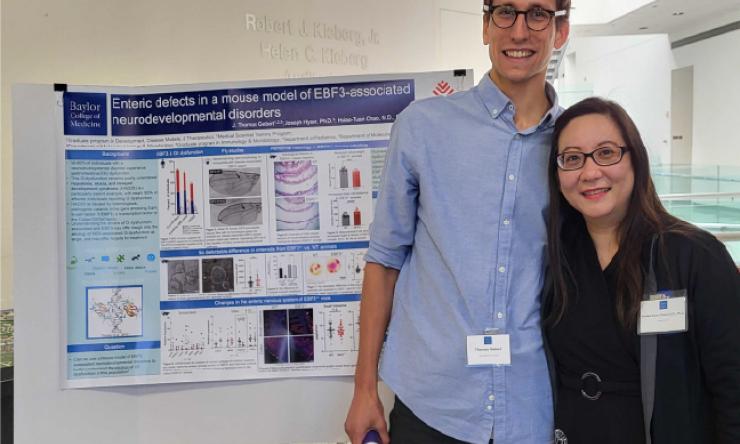
2022 McNair Medical Institute Symposium
Congratulations MSTP/DDMT/GTR-CAQ student Thomas Gebert for a superb presentation on his CTR-CAQ project for EBF3-related disorders at the 2022 McNair Symposium! Grateful to the Foundation for supporting the MSTP McNair students and the McNair Scholars. From left to right: Thomas Gebert, Hsiao-Tuan Chao. Other presenters from the lab at the McNair Symposium include Dr. Maimuna Paul and MSTP/GG student Cole Deisseroth.

Maimuna Paul 2022 National Ataxia Foundation Fellowship
Congratulations to postdoctoral research scientist Dr. Maimuna Sali Paul for receiving the 2022 National Ataxia Foundation Post-doctoral Fellowship! This is one of three awarded in 2022 to future leaders in ataxia research.
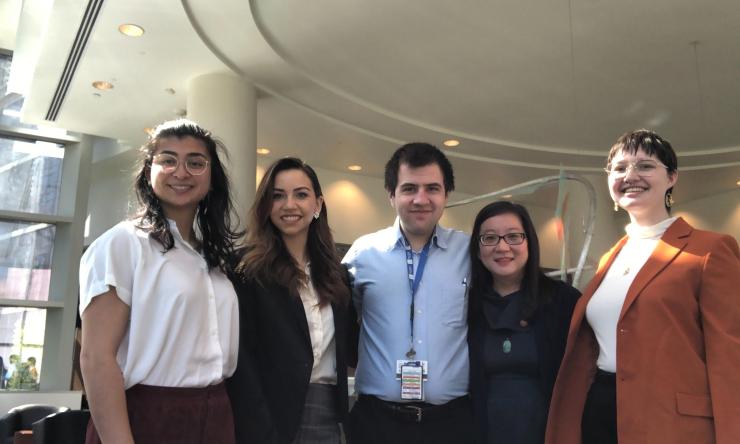
Celebrating Stellar Young Scientists 2022
Amazing team of young scientists working together for autism, ataxia, and rare diseases research, and advancing awareness for EBF3-related disorders. Celebrating Deisseroth et al, Annals of Neurology, 2022 paper in press and many more on the horizon. (left to right) Hallie Lazaro, Vanesa Lerma, Cole Deisseroth, Hsiao-Tuan Chao, Jessica Pfliger
Clinical Study
Natural history and molecular mechanisms of epilepsy, ataxia, autism spectrum and other neurodevelopmental and degenerative disorders, including EBF3-related Hypotonia, Ataxia, and Delayed Development Syndrome (HADDS), EIF2AK2-related LEUDEN syndrome, EIF2AK1-related LEMPSAD syndrome, EIF4A2-related disorder, and PPFIA3-related disorder. Clinical Study Contact: chao-lab@bcm.edu
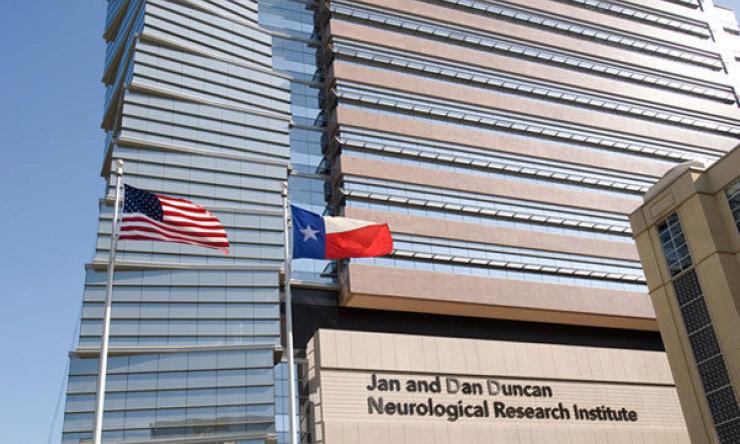
Contact Us
Jan and Dan Duncan Neurological Research Institute
1250 Moursund St
Houston, TX 77030
hsiaotuan.chao@bcm.edu
bridgema@bcm.edu
Phone: (832) 824-8806








 Credit
Credit